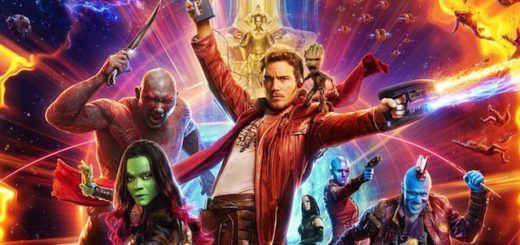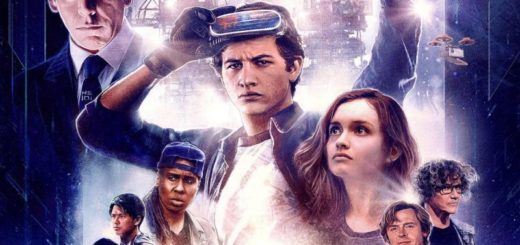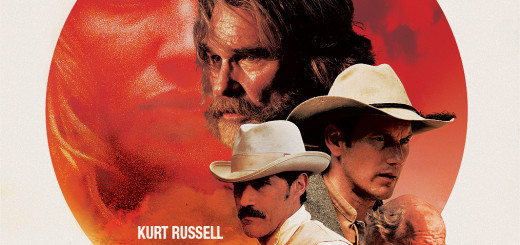THE HUNTSMAN: WINTER’S WAR Review
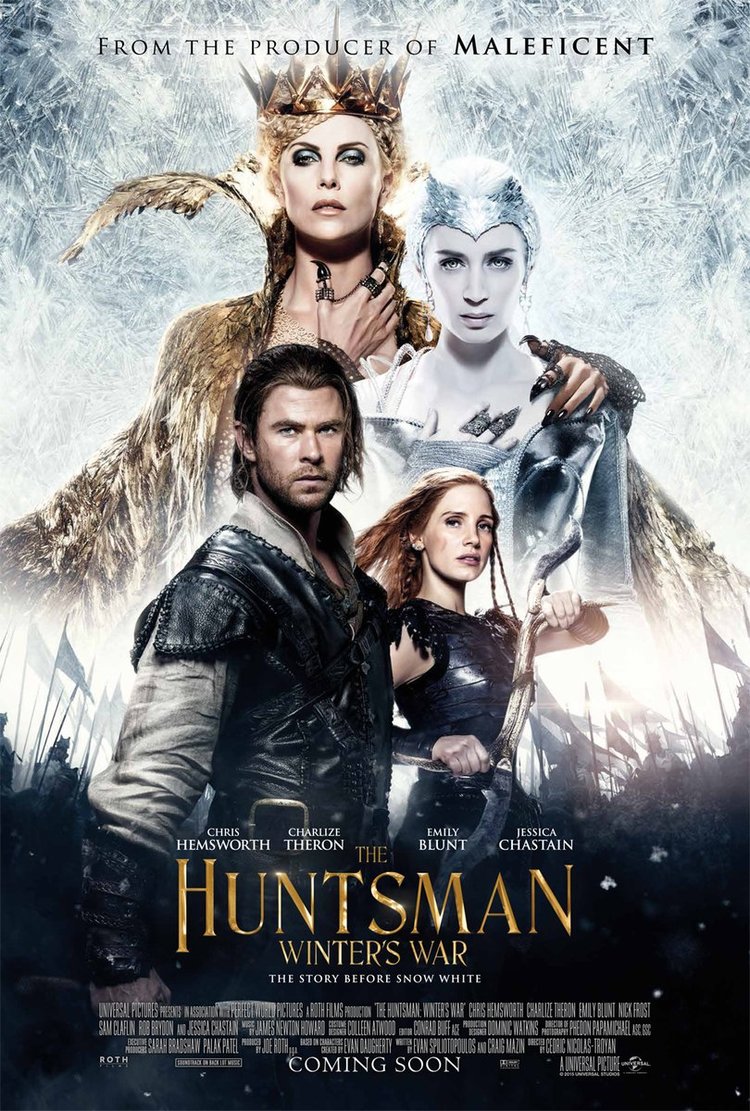
Director: Cedric Nicolas-Troyan
Genre: Fantasy
Year: 2016
As I walked into the screening of THE HUNTSMAN: WINTER’S WAR, I found myself wondering the reason for the recent trend within cinema to adapt what are otherwise children’s tales for adult audiences. That isn’t to say that there cannot be fantasy films for adults, and what are films like DIE HARD, RAMBO, and 50 SHADES OF GREY if not fantasies? It is an entirely different matter, however, when stories such as Snow White are made explicitly and intentionally for mature audiences.
As it happens, WINTER’S WAR answers this question almost immediately in its prologue; the fabled Mirror on the Wall retelling the story of the prior Huntsman film in order to catch audiences up to speed with what they may have missed or forgotten (incidentally, I have never seen the first film, so any specific callback to the original throughout this piece has been lost on me). However, more significantly, the Mirror acts as a conduit through which one can make sense, all at once, of why films such as these have a great resonance with audiences of today. It is in this mirror, depicted here as a cloudy, amber disc, that we see reflected the state of humanity in the 21st century, in all its foggy, confused despair. It is often said that the motion picture acts as a mirror to the world, and in seeing films like Winter’s War through such a metaphor, what we find looking back is a reflection that emanates with the bleakness of modern times, desperate for answers in the texts that seemed to so confidently purport them in our youth or anxious to amend them to better fit these trying times.
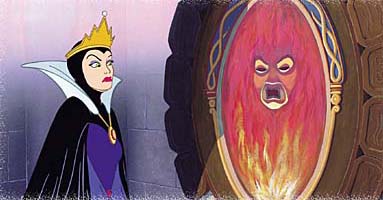
“WHY DO WE KEEP LETTING MACKLEMORE RELEASE MUSIC???”
It does not feel like a stretch to say that the trauma looming underneath the surface of WINTER’S WAR bares a clear resemblance to the larger cultural trauma of 9/11. During the film’s extended opening, we are introduced to two sister queens, who come to represent the duality of the American government: There is Freya (Emily Blunt), who reminds us of the values and virtues that the United States stands for, and Ravenna (Charlize Theron), who reminds us of the uglier truths about the United States as embodied in the participation in Vietnam, the staging of coups in Nicaragua and Iran, and the like – in other words, an expression of imperialistic vanity. And yet, in one fell swoop, the annihilation of innocence – be it the murder of a child or a deadly attack on the World Trade Center – causes all virtue to fall, and in nihilistic rage, Freya falls in line with her treacherous sister, declaring an unending war on all neighboring kingdoms in order to further increase her hegemony in the land.
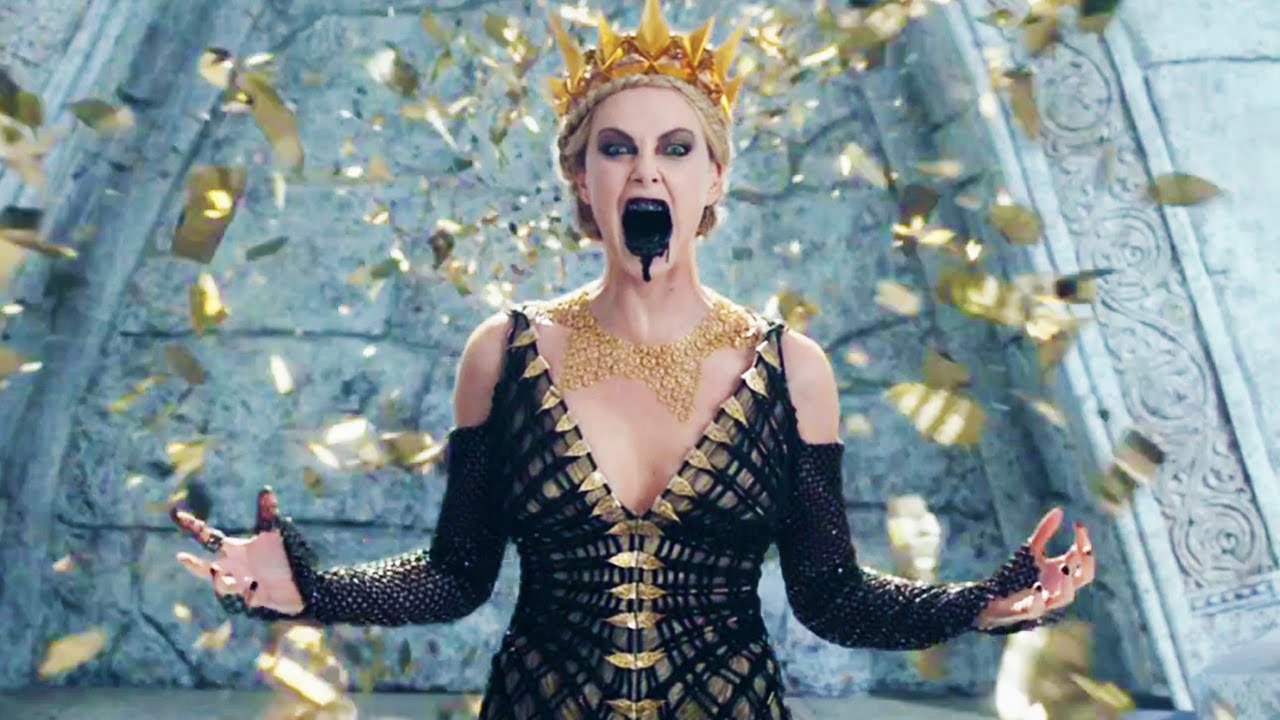
Just a grayscale away from a black metal album cover
Where the film gains a more interesting angle is in how Freya deals with the children of those she conquers. Breaking them of all innocence of the world, she raises them to be soldiers of her own, to further perpetuate her endless fascism. It is from this perspective that the remainder of the film carries on, with two of the children growing into our protagonists, The Huntsman (Chris Hemsworth) and Sara (Jessica Chastain), and it is here that the film finds a rather interesting angle with which it deals with the trauma. WINTER’S WAR is not simply a cultural document of America in the wake of 9/11 and the War on Terror, but rather one seen from and built upon the experience of those who, like the author of this review, have had to grow up in such a broken, tortured, chaotic world.
If this sounds like praise for the film, that’s because it largely is. That being said, whatever benefit is gained through such an approach to the material is ultimately lost in the craftsmanship of the film itself, which is otherwise mostly a bore. Stripped of any clear source material (presumably, the majority of the Snow White fairy tale had been exhausted in the prior film), Winter’s War leans too heavily on the clichés of the genre created by the works of Tolkien and Lewis, without ever having a solid footing of its own identity. In this age of sequels and prequels, it becomes painfully clear when a narrative is tailored to fit within the precedent set up by the first film, and in acting both as a prequel and a sequel, it can feel at times as if WINTER’S WAR is a square piece being jammed into a round hole. It can also be at times tonally jarring, punctuated with moments of comedy that seem out of touch with the otherwise serious melodrama of the piece. What is perhaps more personally disappointing is in how director Cedric Nicolas-Troyan, making his feature directorial debut, stages his action scenes, which at times mix piss poor CGI and weak choreography that relies too heavily on rapid editing, shaky cameras, and loud sounds to pack its punch (say what you will of the Star Wars prequels, but one cannot deny Lucas’s commitment to kinetic action cinema as a counter to the cinematic laziness promoted by films such as The Bourne Identity and the like).
But if there is anything that truly undermines the film and that ultimately hurts it in the end, it is the fact that filtering any sort of serious cultural conversation through the lens of a children’s fable will undoubtedly harm the impact of such a conversation. Even in the moral grayness of the film’s opening bits, that the entire thematic crux of the piece is built on such simplistic terms means that any potentiality for the film to work on a serious level is rather marred. Given the rather adult bleakness of the film’s opening, one may be inclined to hope that it sees such a complexity through to the finish. But, when the conclusion of the film tries to resolve adult issues through a child’s understanding of morality and goodness, it’s hard to feel that the film had anything meaningful to say after all.
Verdict: Do Not Recommend

